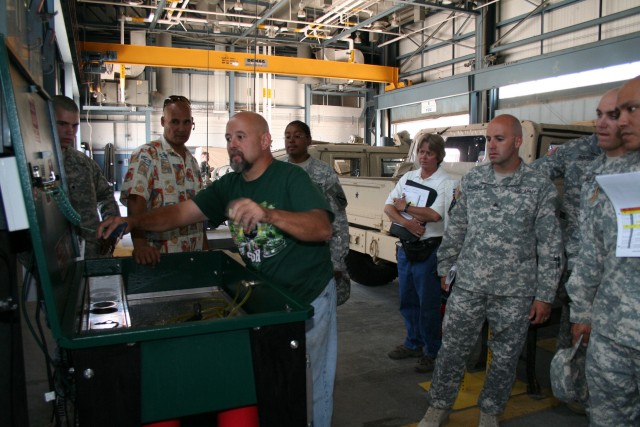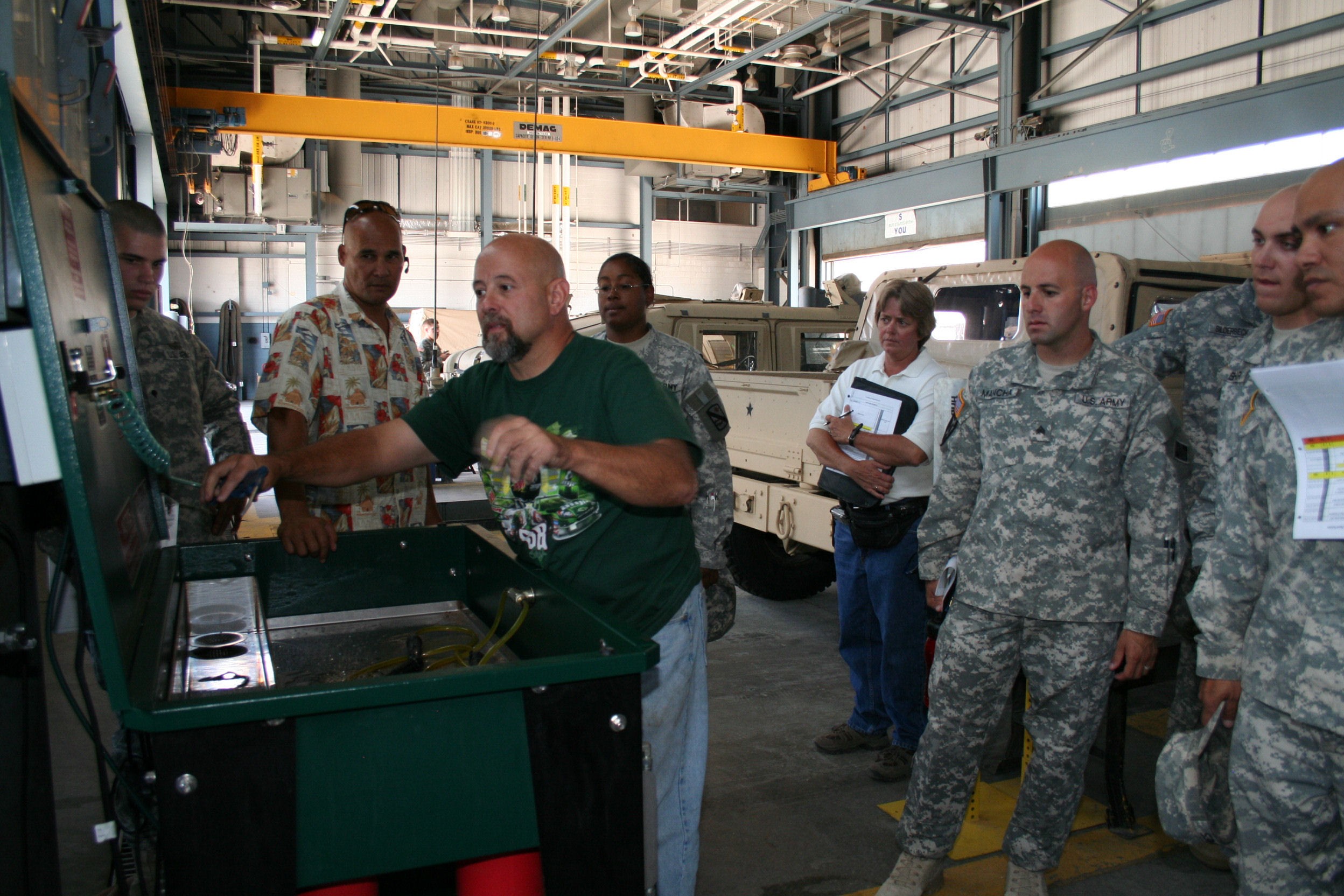
FORT CARSON, Colo.-How do Army leaders do it' How do they accomplish everything expected of them and more importantly, how do they do it at a high level that reflects in a manner that gives proper credit to their units and Soldiers'
The scope of leader responsibilities is immense and preparing for future deployments is the highest priority. Soldiers are the focus and the mission is critical, but in order for commanders to maintain their level of efficiency, the environment must be consistently addressed.
All federal agencies have been directed by presidential executive order to implement sustainable practices and an environmental management system. This means that Fort Carson must act in a manner that meets the needs of the present while still allowing for future generations of Soldiers to meet their needs.
Fort Carson has made the task of maintaining compliance with environmental rules and regulations much easier. All entities on Fort Carson have a resource available to them in the form of the Environmental Compliance Assessment Team or ECAT. Through the ECAT, both sustainability and environmental compliance, which are inter-connected, can be attained.
The ECAT is not affiliated or managed by the U.S. Environmental Protection Agency. Although the team works with the EPA and adheres to its standards, the ECAT is a team that falls under the Directorate of Public Works Environmental Division. The ECAT mission is to support units, garrison directorates and tenants with whatever questions or needs they may have as they relate to sustainability and environmental compliance and management.
ECAT Member Jefferson Hockenberry explained that "one of the biggest challenges we face is making people aware of what we do and how we can help. We are here to support the unit and by doing so, they are able to concentrate more on the mission."
The team is not here to issue fines or impede the mission and it has no authority to function in this manner. That means Soldiers and units can relax when a team member shows up in their work area. They are honestly there to help.
"4/4 (4th Brigade Combat Team, 4th Infantry Division) has definitely benefited from the exceptional support provided by the team. Our representative from the team is extremely committed to helping the brigade and has more or less been 'on-call' for all of our needs," said 2nd Lt. Nadia Kendall-Diaz, 4th BCT, 4th ID, Brigade Science officer of Kevin Lyons, the ECAT member assigned to the 4th BCT. "It's also evident that he prides himself on what he does in the way he takes care of our units."
The four DPW Environmental Division staff members on the ECAT are not only well versed in the areas of environmental compliance and sustainability, but they also have more than 60 years of combined military experience. That means they know what it's like to prepare for exercises in the field, mobilizations, inspections and everything else today's Soldier must be prepared to do. This benefits leaders and Soldiers in countless ways in that the team knows not only what must be done environmentally, but what must be done for a unit to maintain its effectiveness in all those other areas.
"I am very pleased to help units with my past experience as a military member and to help them save money by redirecting material to another unit when they not only need it, but when it could end up as a waste, which costs even more money," said Francis Calar of his work on the ECAT.
The ECAT has a proven track record of effectiveness. For the past two years, the Colorado Department of Public Health and Environment has found no major discrepancies on Fort Carson during annual inspections, which is largely due to the ECAT spending ample time with Soldiers in motor pools and administrative areas ensuring that everything is in the proper order.
Positive inspections also mean a unit's training dollars are not spent on fines and remain available for what they were intended - the mission. Ultimately, the ECAT is a force multiplier or additional support Soldiers may use when sustainability and compliance issues are bubbling below the surface.
Team members are prepared to help address any number of issues including, but not limited to:
Aca,!Ac What to do with old paint stored in motor pools for years.
Aca,!Ac How to address an oil leak near a storm drain.
Aca,!Ac Answering how long fluorescent bulbs can be stored after they've been replaced and how to properly dispose of them.
Aca,!Ac Explaining what the shop towel program is and who does it pertain to.
Aca,!Ac Educating units about how environmental and sustainability issues may differ here compared to Soldiers' previous duty stations.
Aca,!Ac Providing and informing units about the extensive environmental and sustainability training available on Fort Carson
When issues like these come up, the ECAT is readily available to assist and turn potential problems into a new way of thinking.

Social Sharing